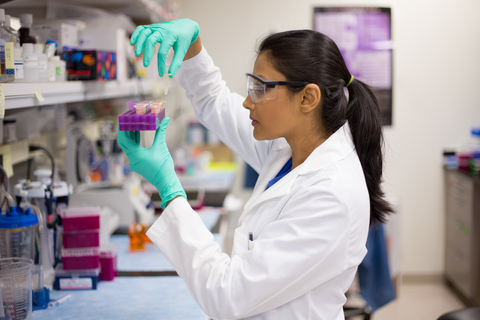Healthy people’s poo could help tackle obesity and diabetes

A research trial in Swansea will see microscopic organisms harvested from the faeces of healthy volunteers and transplanted into the bowels of people with type 2 diabetes who are also obese.
Abertawe Bro Morgannwg University Health Board (ABMU) say the trial has the potential to be a global game changer by leading to weight loss and even to some people being able to stop taking diabetes medication, saving the UK billions of pounds in healthcare costs.
The research is being led by Professor Dean Harris, Singleton Hospital consultant colorectal surgeon, Professor Jeffrey Stephens, consultant physician in diabetes, endocrinology and general internal medicine at Morriston Hospital, junior doctor Andy Cunningham, and Kathie Wareham, Director of the Joint Clinical Research Facility run by ABMU and Swansea University.
They are recruiting thirty people with Type 2 diabetes and obesity. Swansea University, meanwhile, is providing thirty healthy donors and ABMU is funding the research with a £40,000 grant.
Dean Harris said “We began doing clinical trials looking at manipulating the bacteria and organisms that live in people’s gut in 2015. Initially we looked at patients with ulcerative colitis, an inflammatory bowel disease. We’ve been changing what the organisms are in their bowel and we’ve seen great results. Two-thirds of patients have improvements in their symptoms without needing any medication with this therapy, and there’s great interest in applying the technique into other disease areas.”
He said there was evidence that such treatment could help people with a range of conditions, including diabetes and obesity.
To date there has been only one equivalent study, conducted in the Netherlands and involving a smaller number of people. Dean Harris said “It found that changing the organisms that live in people’s gut was associated with an improvement in diabetes control. We were very keen to look at this ourselves in Wales and see if we could improve upon that study in a bigger number of patients.”
The clinical trial is open to people aged between eighteen and seventy who have been diagnosed with Type 2 diabetes within the last two years, which means their condition is potentially reversible, and have a Body Mass Index of between thirty and forty.
Dean Harris said “We will be taking samples from their faeces to study all the organisms that live within it, because we know that these conditions are associated with alterations in certain bacteria that we can then target. We’re also recruiting healthy volunteers from Swansea University to donate their organisms from their faeces and from their gut. We will then introduce the healthy bacteria from a healthy donor into a patient who has an imbalance of gut organisms, with a view to durably changing the profile of gut organisms. This can then be associated with health improvements. We know in patients with diabetes and obesity that their gut organisms are over-efficient in extracting energy from their food, so you have a greater number of calories absorbed from a given meal than somebody who doesn’t have those conditions. If we can change the bacteria and organisms in the gut, they won’t absorb so much energy and, therefore, we’re hoping weight loss can be seen and also tighter control of diabetes can be seen. It may even be possible that people who have just been started on diabetic medication can come off their tablets.”
The donors will be rigorously screened to ensure there are no infectious diseases present. The screening is more rigid than for blood donors.
Andy Cunningham said “We have very specific techniques for extracting the organisms from the donor’s stool. We collect the bacteria some weeks in advance. It is deep frozen and then thawed on the day when we actually do the transplant. It’s in liquid form and injected through a tube in the patient’s nose. There is no smell or taste associated with it – it’s all very purified.”
The study will be conducted over the next twelve months.
Jeffrey Stephens said “We’re very excited about this. There’s no other studies in the UK or even Europe going on into this at the moment. Given the global health problems of diabetes and obesity, this could be a real game-changer. If it goes the way we hope, we would seek further funding for a much bigger trial to study it on a wider basis. This would look at patient satisfaction scores and also include a health economic evaluation because this could potentially save the UK economy billions of pounds in healthcare costs.”
David Johnston from Swansea became aware of the study through an information pack which his GP surgery sent him. After reading it, he decided to volunteer to help take the research forward. He said “Diabetes is a very restrictive condition as a lot of the food and drink I once enjoyed can cause me serious harm. Type 2 diabetes is largely self-inflicted. The most effective treatment also comes from yourself by controlling your diet and increasing activity levels. However, this can be difficult due to high time pressure from work and life in general. This study could lead to a way to help better control diabetes if our diet and exercise control ‘slips’ every now and then, which can be nothing but a good thing.”
People potentially interested in this study can contact the Joint Clinical Research Facility in Swansea on 01792 703722.








